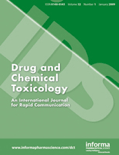
DRUG AND CHEMICAL TOXICOLOGY
metrics 2024
Unraveling the complexities of chemical exposure.
Introduction
Drug and Chemical Toxicology is a well-respected journal in the fields of toxicology, pharmacology, and public health, published by Taylor & Francis Ltd. Since its inception in 1978, this journal has diligently explored the effects and mechanisms of chemical exposures on health and the environment, fulfilling a crucial role in advancing scientific understanding and safeguarding public health. The journal is indexed across prestigious databases and features an impressive array of articles categorized within the Q2 and Q3 quartiles across various categories in 2023, reflecting its significance in Chemical Health and Safety as well as Environmental and Occupational Health disciplines. With an extensive reach and a focus on interdisciplinary research, Drug and Chemical Toxicology offers a rich repository of original research, reviews, and methodological advancements, catering to a diverse audience of researchers, professionals, and students dedicated to the betterment of safety and health standards. Although not an open-access publication, its articles are widely accessible to the academic community, ensuring that critical innovations and insights are shared for the greater good.
Metrics 2024
 0.54
0.54 2.10
2.10 2.40
2.40 54
54Metrics History
Rank 2024
Scopus
IF (Web Of Science)
JCI (Web Of Science)
Quartile History
Similar Journals
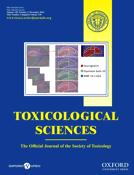
TOXICOLOGICAL SCIENCES
Pioneering Insights in Toxicological ResearchTOXICOLOGICAL SCIENCES, published by Oxford University Press, is a premier journal in the field of toxicology that has been a cornerstone of scientific discourse since its inception in 1981. With an impressive 2023 impact factor and ranked in the Q1 category for Toxicology, this journal is highly regarded among researchers, professionals, and students dedicated to pharmacology and toxicology. The journal is committed to advancing the understanding of toxicological science, covering a breadth of topics that include the mechanisms of toxicity, risk assessment, and the regulatory aspects affecting public health. With an ISSN of 1096-6080 and an E-ISSN of 1096-0929, TOXICOLOGICAL SCIENCES facilitates open access scholarly work, ensuring that critical research reaches a global audience and promotes collaborative learning. As it converges towards 2024, the journal remains pivotal in shaping the future of toxicology research, providing insights that are essential for developing safer chemicals and protecting environmental health.
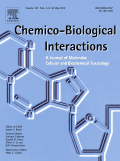
CHEMICO-BIOLOGICAL INTERACTIONS
Illuminating Chemical and Biological SynergiesCHEMICO-BIOLOGICAL INTERACTIONS is a premier journal published by Elsevier Ireland Ltd, dedicated to advancing the field of chemical and biological interactions since its inception in 1969. With a robust focus on pharmacology and toxicology, the journal holds a prestigious Q1 ranking in both Medicine (miscellaneous) and Toxicology, reflecting its significance in disseminating influential research. As part of the Scopus database, it ranks #21 out of 133 journals in Toxicology, positioning it in the 84th percentile and ensuring high visibility for cutting-edge studies. This scholarly platform serves as a crucial resource for researchers, professionals, and students who seek reliable and innovative findings at the intersection of chemistry and biology. While currently not open access, CHEMICO-BIOLOGICAL INTERACTIONS provides a comprehensive collection of articles that contribute to the ongoing dialogue in toxin research and its implications on medicinal chemistry, thereby fostering advancements in public health and safety.

JOURNAL OF APPLIED TOXICOLOGY
Advancing the Science of ToxicologyJOURNAL OF APPLIED TOXICOLOGY, published by Wiley, stands as a leading platform in the field of toxicology, focusing on the rigorous examination of chemical substances and their effects on biological systems. With an impressive Impact Factor, it ranks in the top quartile (Q2) for toxicology journals, reflecting its esteemed position within the scientific community. The journal, identifiable by its ISSN 0260-437X and E-ISSN 1099-1263, has been an invaluable resource since its inception in 1981, and it continues to serve as a conduit for innovative research and practical applications through 2024. Positioned at the forefront of the field, it garners recognition in the Scopus Rankings, where it ranks #31 out of 133 journals in the toxicology category, placing it in the 77th percentile—a testament to its contribution to the advancement of pharmacology and toxicological sciences. While not an open-access journal, it remains accessible to a wide audience of researchers, professionals, and students eager to explore cutting-edge findings in applied toxicology, making it a pivotal resource for enhancing knowledge and fostering collaboration in the field.
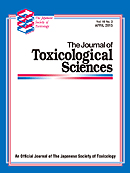
JOURNAL OF TOXICOLOGICAL SCIENCES
Pioneering Studies in Toxicological ScienceThe Journal of Toxicological Sciences, published by the Japanese Society of Toxicological Sciences, is a prominent academic journal dedicated to the comprehensive study of toxicology and its related fields. Since its inception in 1976, the journal has provided a vital platform for researchers and professionals to disseminate innovative findings and insights in toxicology, with a focus on both experimental and clinical studies. Positioned in the Q3 quartile across various relevant categories, including Medicine (miscellaneous) and Toxicology as of 2023, the journal plays an essential role in advancing our understanding of toxic substances and their effects on biological systems. Although currently not open access, the journal maintains high academic standards and is indexed in Scopus, ranking #96 in Toxicology. Offering unique perspectives from Japan, it encourages global collaboration and discourse among toxicologists, making it an invaluable resource for students, researchers, and industry professionals alike.
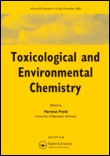
TOXICOLOGICAL AND ENVIRONMENTAL CHEMISTRY
Unraveling the complexities of chemicals and their environmental effects.TOXICOLOGICAL AND ENVIRONMENTAL CHEMISTRY is a pivotal journal published by Taylor & Francis Ltd, addressing critical intersections between environmental chemistry and toxicology since its inception in 1979. With its ISSN 0277-2248 and E-ISSN 1029-0486, the journal serves as a platform for rigorous research and innovative methodologies in pollution control, health implications of environmental chemicals, and the broader spectrum of toxicological studies. Although it currently does not offer open access, the journal's impact in the field is underscored by its Category Quartiles rankings in 2023, placing it in Q3 across Environmental Chemistry, Health, Toxicology and Mutagenesis, and Pollution categories. Furthermore, its Scopus rankings reveal its significant role within the scientific community, specifically in areas such as Environmental Science and Toxicology. The journal aspires to foster multidisciplinary dialogue and advance knowledge that contributes to environmental sustainability and public health, making it an essential resource for researchers, professionals, and students dedicated to these fields.
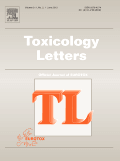
TOXICOLOGY LETTERS
Fostering collaboration to combat chemical hazards.TOXICOLOGY LETTERS is a prominent journal dedicated to advancing the field of toxicology, providing a platform for high-quality research and reviews that explore the effects of chemical substances on biological systems. Published by Elsevier Ireland Ltd, this peer-reviewed journal has established itself as a vital resource in toxicological research since its inception in 1977, with a convergence of studies extending to 2024. With an impressive Scopus ranking, positioned at #28 out of 133 in the Toxicology category, TOXICOLOGY LETTERS garners a respectable percentile of 79, highlighting its significance in the academic community. Although it is not an open-access journal, its research is accessible through institutional subscriptions, ensuring that critical insights into human health and environmental safety are disseminated effectively. Being categorized in the Q2 quartile in both Medicine (miscellaneous) and Toxicology for 2023 further emphasizes its relevance and impact in these fields. This journal aims to foster collaboration between researchers and professionals, encouraging the exploration of innovative solutions to chemical hazards and the promotion of safer practices in pharmacology and toxicology.
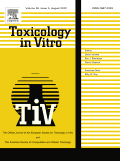
TOXICOLOGY IN VITRO
Exploring the Frontiers of In Vitro ToxicologyTOXICOLOGY IN VITRO is a premier journal published by PERGAMON-ELSEVIER SCIENCE LTD, focusing on the latest advancements in the field of toxicology, particularly through in vitro methodologies. With an ISSN of 0887-2333 and an E-ISSN of 1879-3177, this journal serves as a critical platform for researchers aiming to disseminate their findings in toxicology, emphasizing innovative approaches and applications in pharmacology and toxicology. Featuring a commendable impact factor and classified in the second quartile (Q2) for both Medicine (miscellaneous) and Toxicology in 2023, the journal holds a significant position within the academic community, ranking 41st out of 133 in the Toxicology category according to Scopus, representing the 69th percentile. Despite being a subscription-based publication, it continuously attracts submissions from leading scientists worldwide, fostering a vibrant exchange of scientific knowledge. Since its inception in 1987, TOXICOLOGY IN VITRO has consistently aimed to enhance understanding of toxicological challenges, making it an invaluable resource for professionals, students, and researchers dedicated to developing safer pharmaceuticals and understanding the biological pathways influenced by potential toxic agents.
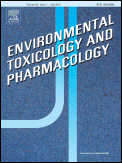
Environmental Toxicology and Pharmacology
Exploring the intersection of pollutants and biology.Environmental Toxicology and Pharmacology, published by Elsevier, is a leading journal dedicated to advancing our understanding of the effects of environmental pollutants on biological systems. With an ISSN of 1382-6689 and an E-ISSN of 1872-7077, this journal covers a wide range of studies related to toxicology, pharmacology, and environmental health. The journal is classified as Q2 in key categories such as Health, Toxicology and Mutagenesis and Medicine (miscellaneous), and sits impressively in Q1 for Toxicology, reflecting its strong impact in the field. As of 2023, it ranks #30 out of 133 in Toxicology and #40 out of 148 in Health, indicating its high relevance and contribution to research. While the journal is not currently open access, it remains a pivotal resource for researchers, professionals, and students seeking to explore the intricacies of environmental health effects. Its commitment to publishing high-quality peer-reviewed research positions it as a crucial platform for scientific dialogue and discovery.
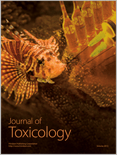
Journal of Toxicology
Unveiling the complexities of toxicology for a healthier world.Journal of Toxicology, published by HINDAWI LTD, stands as a pivotal open-access journal in the fields of toxicology and pharmacology since its inception in 2009. With an ISSN of 1687-8191 and an E-ISSN of 1687-8205, this journal is dedicated to disseminating high-quality research that critically examines the effects of toxic substances on living organisms. Located in Egypt and operating from their London office, it aims to provide an extensive platform for researchers worldwide to share findings that can inform better practices in safety and regulation. As of 2023, it has achieved significant recognition, holding a Q3 ranking in both the pharmacology and toxicology categories, and is indexed in Scopus with noteworthy percentile rankings (Toxicology: 57th and Pharmacology: 55th). With a focus on innovative studies and emerging areas such as environmental toxicology, biomarker research, and therapeutic interventions, the Journal of Toxicology invites both experienced researchers and students to contribute, thereby enhancing the breadth and depth of toxicological knowledge for the global scientific community.
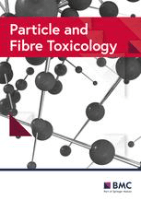
Particle and Fibre Toxicology
Championing open access for groundbreaking findings.Particle and Fibre Toxicology is a leading open-access journal dedicated to advancing the field of toxicology, specifically focusing on the health impacts of particulate matter and fibers. Published by BMC since 2004, this journal operates from its offices in the United Kingdom and has gained significant recognition in the scientific community, achieving an impressive impact factor that highlights its relevance and influence. As indicated by its Q1 ranking in various categories including Health, Toxicology and Mutagenesis and Medicine (miscellaneous), it occupies a prestigious position in the academic landscape, appealing to researchers, professionals, and students alike. With a Scopus ranking of #4 in Toxicology and #7 in Environmental Science, the journal ensures high visibility and accessibility, providing a platform for the dissemination of key research findings and innovative methodologies in the interdisciplinary domains of toxicology. Through its commitment to open access, Particle and Fibre Toxicology fosters knowledge-sharing and collaboration, facilitating significant advancements in our understanding of the toxicological effects of environmental agents.